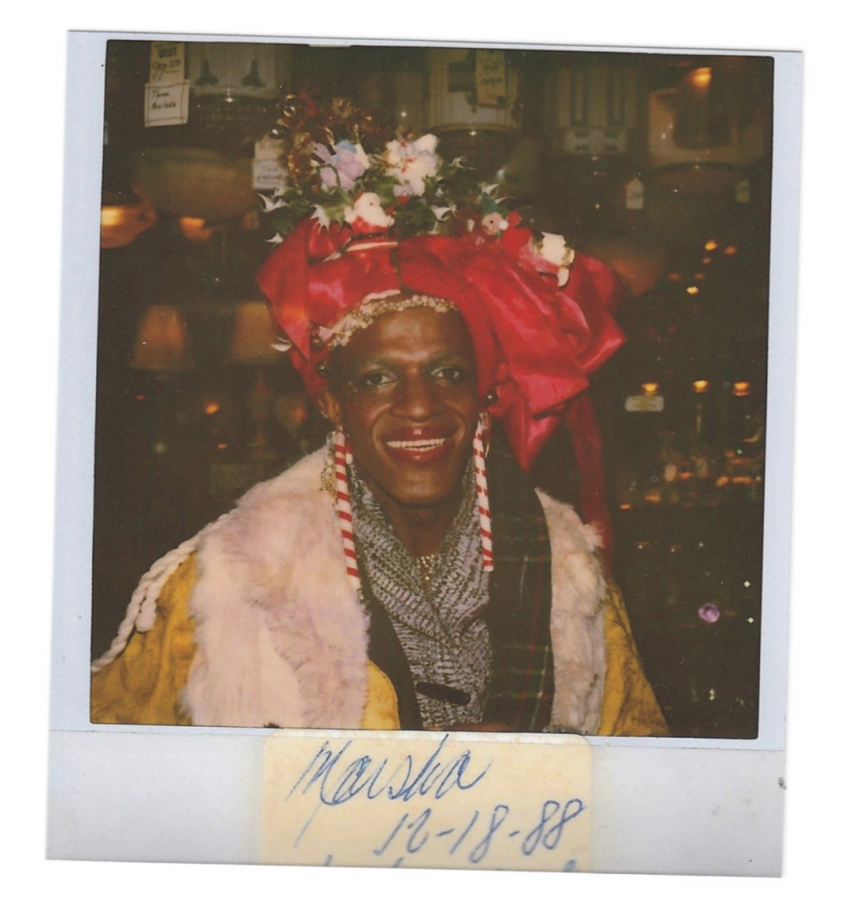The Life of Martha P. Johnson
March 4, 2022
Marsha P. Johnson was an American gay rights activist and an integral proponent of the progressive LGBTQ+ movement which famously occurred in 1969. As a self-identified drag queen, Johnson experienced systematic discrimination and the strife associated with being a gay member of society during the 1960s and 1970s. Her trailblazing efforts to destigmatize transgender and transvestite identity have been recalled decades after her untimely and notably tragic death in July of 1992.
Early Life
According to the Marsha P. Johnson Memorial Website, Johnson was born Malcolm Michaels Jr. to parents Malcolm Michaels Sr. and Alberta Michaels on August 24, 1945, in Elizabeth, New Jersey. Johnson was identified as a male at birth, but felt comfortable experimenting with different forms of clothing growing up. Young Marsha enjoyed wearing traditional girl’s clothing, but was often bullied for her unconventional style and as a result, became quickly discouraged in her youth from crossing gender lines. In an interview later in life, Johnson commented on her experience of being a young victim of rape by a male peer at school. After that point, Marsha was ashamed of being gay and largely sheltered her selfhood. Marsha also received little support for her gender affiliation from her family; as her mother repeatedly noted that being homosexual was like existing as “lower than a dog”.
Johnson was the fifth of seven children in her packed household. She graduated in 1963 from Thomas A. Edison High School, and received the entirety of her education in the Elizabeth Public School System. As a wayward adolescent, Johnson briefly enrolled in the United States Navy promptly after graduating from high school.
Johnson’s Time in New York City
After relocating to Greenwich Village in New York, equipped with a mere sum of fifteen dollars and a bag of clothes, Marsha sought out her interests and identity. She quickly delved into the practice of sex work and prostitution to glean any source of money. Although her profession received a poor connotation from others at the time, Marsha Johnson soon became an enduring name throughout the busy streets of New York; notably Christopher Street which had a name for its lively nightlife and drag queen clubs.
In the midst of her discovery phase, Johnson advised anyone particularly interested in her name to refer to her as Marsha P. Johnson, with the “P” occupying a pseudonym for “Pay It No Mind”. In other words, when passersby in New York rudely noted the ambiguity of her gender, she told them to “Pay It No Mind”. Her moniker “Johnson” was derived from the restaurant name Howards Johnson’s on 42nd street.
As Johnson put it, her identity as a drag queen offered her a semblance of identity and companionship, in contrast to her past of brutal emotional insulation, “I was no one, nobody, from Nowheresville until I became a drag queen. That’s what made me in New York, that’s what made me in New Jersey, that’s what made me in the world.”
In a written obituary of Martha P. Johnson conducted by the New York Times, author Sewell Chan posited, “You might expect a person in such a position to be fragile, brutalized, beaten down. Instead, Marsha had this joie de vivre, a capacity to find joy in a world of suffering. She channeled it into political action, and did it with a kind of fierceness, grace and whimsy, with a loopy, absurdist reaction to it all.” Johnson’s conspicuous and flamboyant appearance commanded the attention of others. Edmund White, a frequent writer in the 1979 Village Voice publication, also illustrated how Johnson’s garments sought to convey “the interstice between masculine and feminine”. The nature of Johnson’s gender affiliation was free and nonbinding, and she likewise advocated for the privileges of others like her to experiment with gender-fluidity.
Before Marsha endorsed more widespread activism in the gay rights sphere, she earned a fond place among New York City’s homeless population for being extremely generous. She was even dubbed a “drag queen mother” because of her philanthropic attitude towards the struggling LGBTQ youth at the time. According to personal accounts, during her commute to her New York City apartment Marsha would regularly invite visibly struggling homeless people into her home for a hot meal.
Stonewall Uprising and Riots
The Stonewall Inn, a prevalent bar and recreational tavern typically frequented by gay men located in the Greenwich Village of Lower Manhattan, employed a significant event of social uprising during the early morning hours of June 28, 1969. The scuffles with law enforcement all began because homosexual acts remained illegal in every state at the time, except for Illinois. Most restaurants could be evicted if any gay employees or gay patrons were detected within their parameters. The uprising incited a series of demonstrations and reform marches throughout the gay populated regions of Greenwich Village for about a week afterwards. Johnson was one of the only drag queens to go to the Stonewall Inn and participate in the protests, as women and transgender individuals generally did not visit the pub.
The implications of the Stonewall uprisings resounded throughout the culture of New York City and led Johnson to join other activist associations aimed at improving the living and working conditions of members of the LGBTQ+ community.
Alternate Forms of Activism
Johnson joined the Gay Liberation Front and was an ongoing member of the GLF Drag Queen Caucus following her involvement in the Stonewall events. She was intermittently active in assembling gay pride rallies and support groups, including the infamous Christopher Street Liberation March and a sit-in protest located at Weinstein Hall at New York University. Marsha was also an AIDS disease activist under the organization “Act Up”.
Upon an interviewer asking Johnson her reasoning behind marching at a gay rights rally at New York City Hall in the 1970s, she replied, “Darling, I want my gay rights now!”
More notably, Johnson helped establish the STAR House organization with her long-time friend Rivera. The STAR House served as a popular shelter for homeless and suffering gay and transgender youth. The house relocated multiple instances over the course of the late 20th century.
Later Life & Legacy
According to Women & The American Story Website, the body of Martha P. Johnson was recovered from the Hudson River on July 6th, 1992. An alleged autopsy by police officers ruled the death of Johnson as suicide. However, family members and friends of Martha were glaringly cognizant of the growing number of hate crimes targeted at trans women of color, and refused the claims. No tangible conclusion regarding the true source of Martha’s death has been discovered since then.
Following her tragic death, Johnson still remained a glorious emblem and martyr of the power of love and generosity in the face of struggle. In 2019, a statue of Marsha P. Johnson was erected in New York City and became the very first monument to revere the legacy of a trans woman in the entire city.































